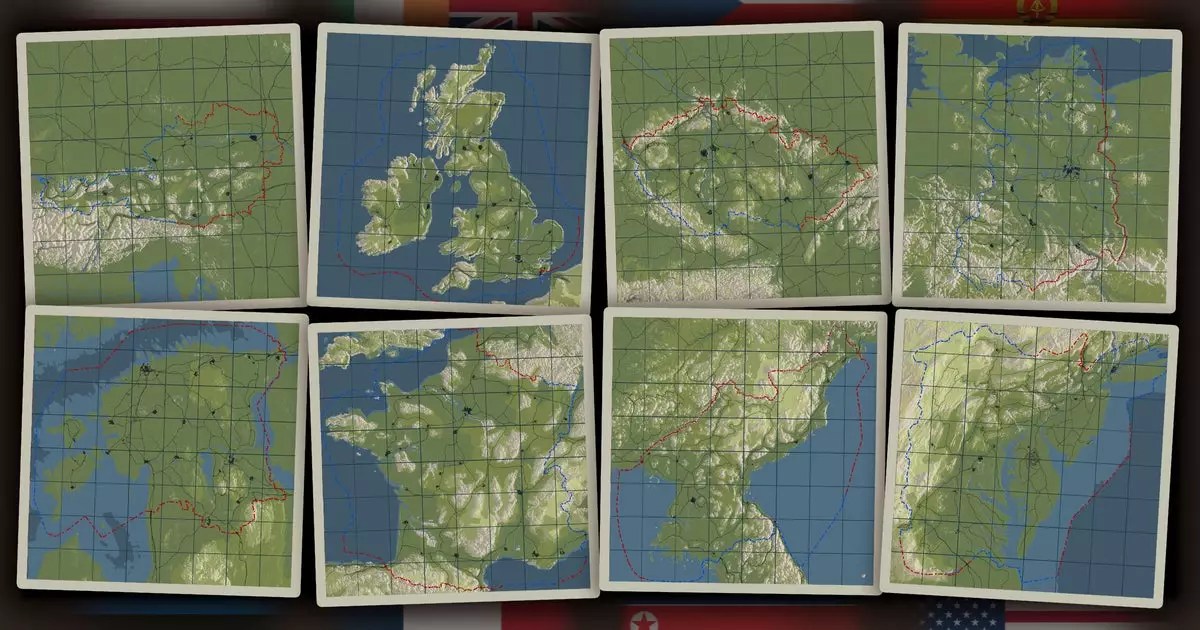The world of video games often reflects the complex interplay between culture, politics, and economics. One such intriguing example is “Workers & Resources: Soviet Republic,” a city-building simulator by 3DIVISION and Hooded Horse, which has gained a dedicated following due to its meticulous planning and resource management mechanics rooted in a unique historical context. The recent announcement of the “Worlds Map DLC” promises to broaden its reach and enhance gameplay, offering players eight new maps influenced by different global regions.
The expansion features maps in diverse locations, including the Eastern United States, ranging from New York to North Carolina. It also brings a map representing the United Kingdom, which historically birthed socialist thinkers like Karl Marx. This choice resonates with the game’s overarching theme of managing economies through state planning. The developers emphasize the comprehensive and often overwhelming nature of managing such intricate economies where “no place is safe from the calculating gaze of our new socialist overlords.” The humor in these descriptions is reflective of a cultural critique of capitalist systems, albeit with a tongue-in-cheek approach.
Alongside the USA and the UK, players can explore environments in Austria, the Czech Republic, East Germany, France, Estonia, and North Korea. Each map features unique topographical and infrastructural challenges reflective of their real-world counterparts. This brings not only regional diversity to gameplay but also an opportunity to engage with these economies’ distinct historical and social narratives. The focus on pre-generated towns and cities aids in simulating realistic scenarios that players must navigate, thus enriching the overall gaming experience.
At its core, “Workers & Resources” challenges players to create efficient and effective economies rooted in planned systems. The game’s mechanics encourage players to develop infrastructures like recycling operations or natural resource management, demanding a higher level of strategic thought compared to traditional city builders. A player must assemble a workforce, manage production lines, and construct buildings, all while dealing with the intrinsic complications of economic planning. This depth garners a rich tapestry of gameplay where both rewards and frustrations blend harmoniously.
Critics, including those who have closely analyzed the game, laud its engrossing commitment to exploring planned economies. The game’s complexity, while daunting for some, is also a source of its charm. Players are rewarded with the satisfaction of watching complex systems function coherently, a testament to the intricate world-building that mirrors real-life socio-economic structures.
What sets “Workers & Resources” apart from other city-building simulators like “SimCity” is its emphasis on the contrasts within economic theories and practices. Rather than glorifying individualism, the game invites players to appreciate collective management and the practicality of socialism. As developers look to expand the game beyond the confines of its original premise into contexts like North America, one cannot help but wonder how the game will reshape the players’ perceptions of traditional capitalist ideologies.
The anticipation for the new maps begs a parallel inquiry: could these new settings foster an appreciation for alternative economic models? This question could reframe the players’ understanding of city-building as they navigate environments steeped in different historical contexts and challenges.
Scheduled for release on December 13 via Steam, GOG, and the Epic Games Store, the “Worlds Map DLC” serves as an invitation for players to reflect on their own economic realities while engaging with gameplay. The inclusion of localizations ensures the game remains accessible to a global audience, fostering a community that reflects diverse perspectives.
Ultimately, the exciting development of new maps and the expansion of “Workers & Resources: Soviet Republic” illustrates the potential for video games to function as cultural critiques and pedagogical tools. By immersing players in a reimagined economic landscape, the game challenges gameplay norms and opening discussions about diverse economic frameworks. As players prepare to explore new territories, they might find themselves not only managing resources but also re-evaluating their relationships with the methods that underpin their own economies.


Leave a Reply